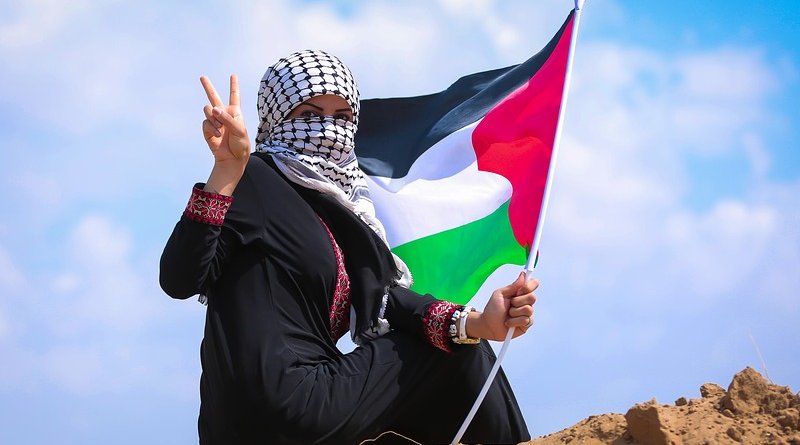The Middle East: War And Opportunity For Peace – OpEd
Israel’s stated goal of toppling Hamas in Gaza should not only be a declaration of war but also an opportunity for peace.
If the political actors act wisely, a window of opportunity might open for a final peace between Israelis and Palestinians.
Hamas installed a totalitarian, oppressive regime in Gaza in 2007. Since then, it has focused on fighting an external war against Israel instead of exercising good governance, building civilian infrastructure, and promoting economic development.
For this reason, it is crucial to separate the people of Gaza from their Hamas government. Doing so will not only help protect civilians but will also help Israel take advantage of the gap between Hamas and the people of Gaza to achieve stability and hopefully peace.
It is in Israel’s interest to minimize civilian casualties. It is also in the interest of Gazans to help the Israelis directly or indirectly get rid of Hamas. Therefore, Israel’s military operation must be surgical, focused solely on Hamas leadership and its military infrastructure.
Furthermore, this war should have a vision of peace. A major open question is what will happen after the war ends, assuming Israel succeeds to depose Hamas. Here, it is important to draw some lessons from the United States’ experience in Iraq.
After removing the Hamas regime from power, Israel must begin the process of withdrawal from Gaza and allow for a process of political transition.
That leads to a third question: to whom?
One natural possibility is for the Palestinian Authority (PA) to take over the government in Gaza. Since the PA’s president Mahmoud Abbas is not likely to live long, this is the time to press Abbas to appoint a successor, ideally someone like Salam Fayad, a former Prime Minister who did more than anyone else to build a state structure and an economic foundation with the Palestinian population in mind.
If this arrangement works out, the security cooperation that has existed between Israel and the PA for decades in the West Bank could be replicated in Gaza.
Without such security cooperation, the PA would not have survived in the West Bank., and both Israel and the West Bank would have been more vulnerable than it is now. The relatively successful experience in security cooperation could be a key in future arrangements.
The second possibility is to transfer authority to the United Nations, which could exercise governance and prepare the groundwork for elections. If that occurs, Hamas must be proscribed from running and there should be a thorough process of “de-Hamasification.”
It is uncertain if the UN option would work. The UN is known for often being ineffective, and United Nations Relief and Works Agency for Palestine Refugees in the Near East (UNRWA), which deals with Palestinian refugees, has turned out to be a corrupt and weakly supervised organization filled with staff hostile to Israel.
On another aspect, the Israelis should focus on resolving the Palestinian question. Normalization with the Arab world, particularly with Saudi Arabia, without resolving the Palestinian issue was problematic before October 7 and is even more so after.
Israel should dismantle the right-wing coalition currently governing, build a political consensus with the centrist parties, and agree on a political solution that is viable not just for Gaza but for the Palestinian people.
It is also critical to halt the expansion of settlements and new construction. Likewise, it is essential to allow Palestinian Arabs to build on Area C of the West Bank- currently under full Israeli control- without red tape or any other obstacle.
Hamas has been a critical impediment to the progress of the peace process and has undermined the Oslo peace process from the beginning through the execution of deadly terrorist attacks. In the Second Intifada, groups associated with the ruling Fatah joined Hamas’ violence.
Finally, Hamas violently removed Fatah from Gaza, converting the strip into a huge missile launching pad at the expense of the well-being of its civilians.
After Hamas is fully defeated, and if Israel feels it is safe to renew the peace process, it should consider making concessions to the Palestinians as it did in the past.
Second, the Palestinian leadership needs to stop the venomous antisemitic propaganda directed as Israel, which has been conducted by a deeply insecure PA terrified by Hamas.
The PA should proceed to re-educate its population by laying out the benefits of peace with Israel. The Palestinian leadership has never done that. Likewise, it should eliminate antisemitism from its message and any other expression of animosity towards Israel. That could change the environment surrounding negotiations and help build confidence between the parties.
Likewise, the Palestinian leadership must give up unreasonable demands such as the “right of return” of 1948 Palestinian refugees and their descendants and educate their people to accept the idea of a Palestinian state in the West Bank and Gaza.
Third, the PA needs to be tested to see if it can exercise complete control of the Palestinian territories.
Thus, the PA needs to reinforce its legitimacy. The elimination of corruption, improvement of governance, and economic recovery to benefit the people is crucial. Saudi Arabia and the rest of the Persian Gulf countries should help financially to lift the Palestinians economically. Palestinians perceive the PA as corrupt and oppressive, which means that it has no choice but to act differently. However, since the PA is not expected to reform itself, perhaps a good idea would be, as Charles Dunn has suggested, to appoint an international receivership, supervised by the International Monetary Fund, the World Bank, or some other institution capable of making good use of foreign aid.
The ground should be prepared to shift the Palestinians from a revolutionary society to a civil society.
All these proposals present considerable challenges. Yet, as the February 2023 Summit in Aqaba demonstrated, that cooperation between Israelis and Palestinians is still possible.

